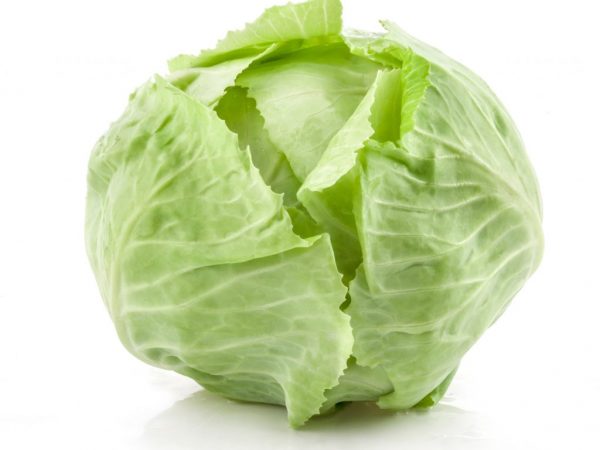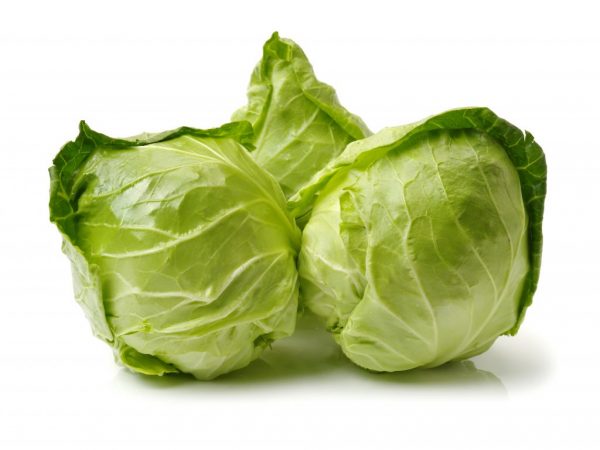For what reason fresh cabbage is bitter
After harvesting or buying white cabbage, the hostess may find bitterness in it. Cabbage is bitter for several reasons.

Causes of bitterness in fresh cabbage
Natural causes
Almost all cabbage stubs, as well as some of the leaves, have a slight bitterness - this is normal. The reason for the phenomenon is the content of glycosides in the vegetable, which are the natural defense of the plant against pathogens and pests.
Late and mid-late varieties are capable of accumulating glycosides in greater quantities than varieties that ripen earlier. This also applies to hybrids of the Ogorodnaya lady.
For winter consumption, these varieties are suitable after lying down for a while. As a rule, they are used for food not earlier than February. They are distinguished by dense, bluish outer leaves with a waxy coating and green leaves on the inside. The amount of glycosides decreases in proportion to the storage time. The harvest of these varieties is stored in a cellar, until March the bitter taste disappears completely.
In summer and autumn, early and mid-season varieties are eaten, the leaves of which are light green or white. The same types are suitable for fermentation for the winter.
Growing errors
Excessive content of mineral fertilizers, nitrogenous compounds and nitrates, as well as a lack of potassium, phosphorus and trace elements during the formation of the fork, give the crop a bitter taste. Cabbage is very bitter if a large amount of fertilizer is combined with poor watering.
Harvesting prematurely prevents the vegetable from ripening and acquiring its natural flavor. Bitter peppers, grown nearby, transmit their taste in the neighborhood, so it cannot be planted in the immediate vicinity.
Cabbage tastes bitter if bitter substances are increased by adverse factors such as extreme heat or drought. During watering, it is important not to forget to carry out the treatment with potassium humate. Cabbage beds are watered according to the variety and weather conditions. Cabbage loves water - be sure to take this fact into account when growing.
Harvesting must be carried out not later and not earlier than the set deadlines. Correct crop rotation in your garden helps you get great-tasting forks.
How to get rid of bitterness

Soaking in water will eliminate the bitterness of fresh cabbage
The bitterness from the heads of early varieties goes away if their leaves are dipped in boiling water for a minute. You can also remove the bitterness from cabbage if you chop it finely, and then hold it in water for half an hour.
Sauerkraut will not taste bitter if, 2-3 days after salting, you pierce it in 5-10 places with a thin wooden stick, and then place it in a cold place. Sauerkraut is washed only with cool boiled water, but not hot or warm: this will deprive it of its taste and all useful substances.
If late cabbage is noticeably bitter due to the fact that it was removed before the first frost, its bitterness cannot be removed: it will not disappear even after storage.
Sauerkraut or fresh cabbage, which has lost its positive qualities and is bitter due to long storage, must be thrown away without regret.
Bitterness in cauliflower and brussels sprouts
Fresh cauliflower sometimes tastes bitter. To cope with this, it is scalded with boiling water or boiled. Salted and acidified water, if you soak cabbage in it, will also relieve it of bitterness. A good solution to the problem is to spray the disassembled inflorescences with lemon juice.
Bitter Brussels sprouts are deprived of this quality with the help of proven means. There are 2 main methods used in cooking:
- When cooking, add a few drops of lemon juice to the water. When cooking with a double boiler, add a little more lemon juice to the water.
- Place the cabbage in boiling water for a few seconds. After that, drain the liquid, pour fresh, bring to a boil and cook for 10 minutes.
Summarizing
Any type of cabbage has unique nutritional and beneficial properties. The vegetable is used for the treatment and prevention of various diseases. The main thing is that the taste remains pleasant, and for this, using proven methods, it is necessary to rid the culture of bitterness.


